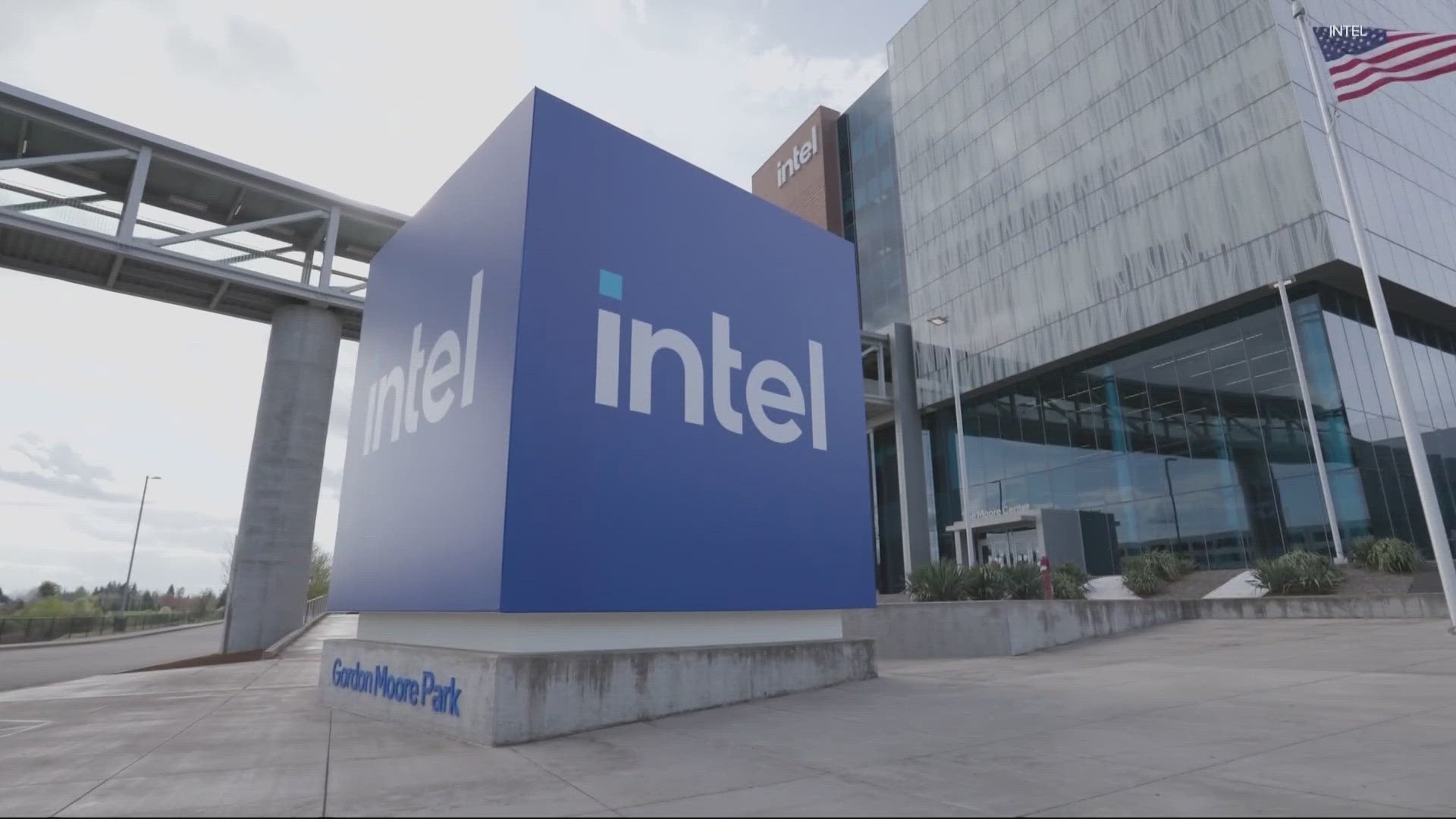HILLSBORO, Ore. — The Biden administration announced this week that it will cut some of the funding initially awarded to tech giant Intel under the CHIPS Act as they finalize the deal. At first blush, it's the latest in a series of bad breaks for Oregon's biggest private employer — but it's possible that getting the money now, even if it's less than expected, could still be good news.
In March, the Biden administration said it would award $8.5 billion to expand Intel's semiconductor manufacturing programs, with some of that expansion set to happen in Oregon. About $1.8 billion was destined for modernization of Intel's fab complex in Oregon, where chips are made.
But in the following months, it became clear that Intel was falling behind in the race to make chips powered by artificial intelligence, an arena where its competitors have pulled ahead. Intel's stock price has dropped by 60% over the last five years, and it just went through a painful round of layoffs, cutting 15,000 workers worldwide and about 1,300 in Oregon.
Federal officials confirmed this week that Intel will receive roughly $500 million less from the government through the CHIPS Act after finalizing negotiations for the deal.
Mike Rogoway, business reporter for The Oregonian, said the explanation from the feds is that Intel recently won a $3 billion defense contract.
"Other folks look at it and they say, 'Well yes, but also Intel is scaling back its ambitions' — their timetable for expansion has slowed considerably, and there are definitely some projects that were included in the original agreement that are not included in the current one," Rogoway said. "For example, a factory in Ohio that was due to open in 2031 will open, but the second one will open sometime after that."
Still, Rogoway thinks that this isn't necessarily bad news for Intel. Instead, things are happening on a more realistic timetable for them.
"I think it's good news for them. Their CEO, Pat Gelsinger, has become increasingly vocal over the past couple of months about the delay in the funding," Rogoway said. "I think from Intel's perspective, having the certainty that the money is coming is well worth the offset of about a 6% decline."
President-elect Donald Trump has been critical of the CHIPS Act, though Rogoway pointed out that he was supportive of similar initiatives during his first term. But the threat of a Trump administration upset to CHIPS meant that both Intel and the Biden administration were eager to get the deal done and the money out the door before January.
There's still one more program that Intel and the state of Oregon are anxiously waiting on, Rogoway said. The federal government has said that the CHIPS Act would also pay for at least three large semiconductor-related sites in the U.S., and two have already been awarded. Oregon and Intel badly want the third to be sited in the state. An announcement on that final award is expected to come in the next few weeks.

